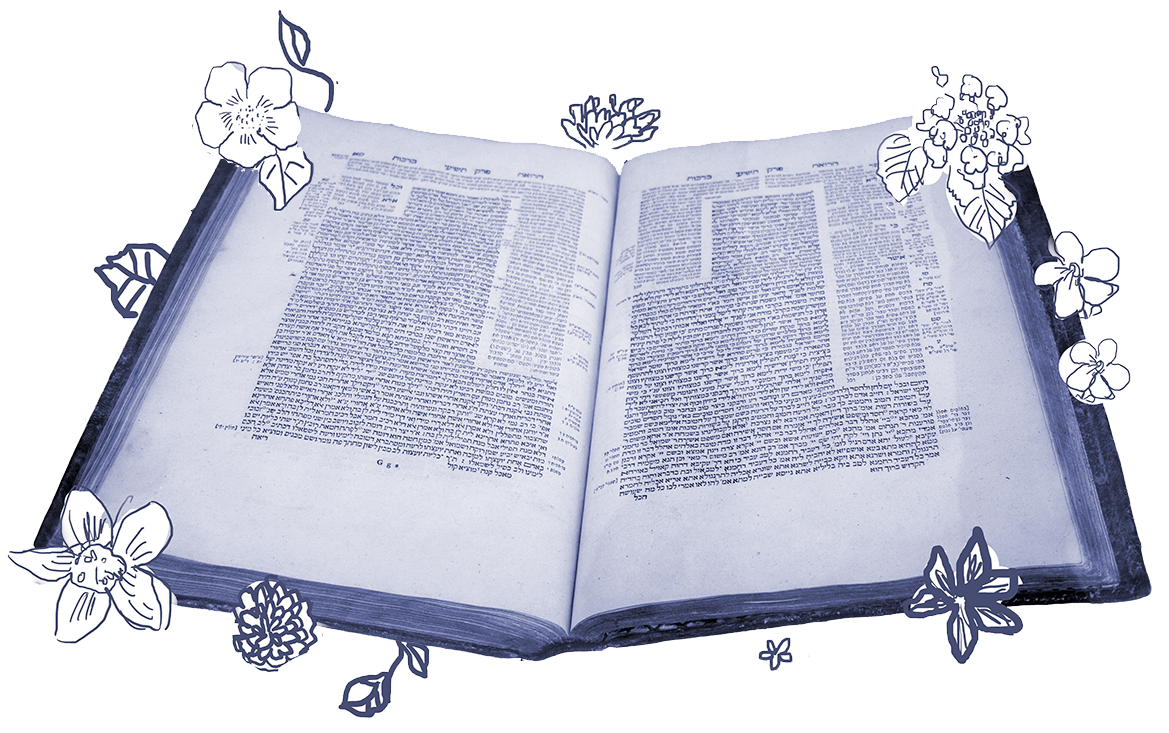In several places, the Gemara refers to a principle called dina d’malchuta dina — the law of the kingdom is the law, meaning that Jews are subject to the laws and judgments of the country in which they live. Today’s daf gives us an example of how this works in practice.
Rava said: Know that this principle is true from the fact that the municipal authorities cut down palm trees without the consent of their owners and construct bridges from them, and yet we cross over them.
Halakhah prohibits benefitting from stolen property, so if Jews are permitted to use the bridge, we can conclude that the wood used to build it was taken and used legitimately. This, Rava says, demonstrates the rabbinic principle that upholds the authority of the law of the kingdom, even when it seizes an individual’s trees for governmental and communal purposes.
Abaye proposes an alternative explanation for why use of the bridges is permitted:
With your help, My Jewish Learning can provide endless opportunities for learning, connection and discovery.
Abaye said to Rava: Perhaps the reason the bridges may be used is because their owners despaired of retrieving them and not because the law of the kingdom is the law.
Rava said to Abaye: If not for the fact that the law of the kingdom is the law, how would the despair of the owners of the trees allow us to use the bridges?
We’ve previously explored this concept of ye’ush — often translated as despair — under which someone gives up on retrieving their lost property, allowing ownership to pass legitimately to a person who finds it. Abaye makes a decent point: The wood’s original owners have surely given up on getting it back, so it’s acceptable to use and benefit from it. But why, Rava rejoins, have they given up on getting it back? It’s because it was properly taken by the government under the principle of dina d’malchuta dina.
Today’s daf also introduces a potentially confounding twist:
But the municipal authorities do not act as the king said. The king said: “Go and cut down a bit of wood from all the valleys in the area so that each individual loses only a small amount of wood.” They, however, disobey the king and go and cut down all the wood needed for the bridge from one valley.
In this scenario, the local satraps haven’t just improvised, they’ve actually gone against the king’s express instructions. Is it still OK to walk on the bridges built from the seized wood? The Gemara replies:
An agent of a king is like the king himself, and he is not expected to trouble himself to collect wood proportionally from each valley. They, the owners of the land where the wood is cut, cause themselves a loss, as they should collect compensation from all the other residents of the valleys and take money from them for this purpose.
This teaching extends the principle of dina d’malchuta dina: A king’s agent, argues the Gemara, stands in the king’s stead and therefore carries his authority. Therefore, even under these circumstances, in which the agent violated the king’s directives, the wood is not considered stolen. The Gemara also notes that there are ways for the local people to share the losses and steer back toward the king’s original intention of spreading the costs evenly. It’s unclear from the Gemara alone if this should be undertaken at the agent’s orders or if the community does this themselves, but regardless, the agent’s actions are deemed legal.
Often, the situations invoking dina d’malchuta dina are ones where the real-world outcome is inescapable. It’s hard to imagine the rabbis barring Jews from using a public bridge and even less likely to encourage disobedience of a kingdom’s laws. Jewish law held very little persuasive authority outside of Jewish communities, and Jews’ vulnerability would have left them unable to defend themselves if they chose to ignore the king’s diktats. But the rabbis are able to wield this principle in a way that gives the decisions halakhic legitimacy and keeps Jewish law aligned with local power and real-world constraints.
Read all of Bava Kamma 113 on Sefaria.
This piece originally appeared in a My Jewish Learning Daf Yomi email newsletter sent on February 23rd, 2024. If you are interested in receiving the newsletter, sign up here.



